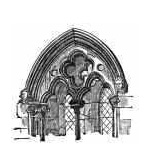
A Litany of Repentance for the U.S. Church
GUEST COLUMN
When King Josiah was twenty-six years old, workmen repairing the Lord’s house discovered scrolls hidden away in the temple, probably the Book of Deuteronomy, full of blessings for keeping the covenant, and curses for forsaking it (2 Chron. 34). When Hilkiah the high priest had the book read to Josiah, the king realized that for generations the Israelites had turned their backs on the covenant, and he rent his garments. All the kingdom made repentance, tore down the idols, and destroyed the hilltop shrines to various gods. But it was too late. Just thirteen years later, Josiah was killed by the Egyptian army, and the kingdom went into its final moral and political death throes, culminating in the Babylonian captivity.
At various times in U.S. history, presidents and Congress have called for days of fasting and prayer as the nation endured periods of political, financial, and moral peril. Times of war were particularly chosen for this exercise in political religion. Those times have perhaps passed forever. But today both the U.S. and the Catholic Church in the U.S. are in very serious trouble — economically, politically, and especially spiritually. It is high time that the U.S. bishops together called us as a Church to a public act of repentance. I offer the following litany for such an occasion:
Response: Lord, have mercy on us, and hear our prayer.
Lord have mercy. Christ have mercy. Lord have mercy.
You May Also Enjoy
In the wake of the Imus affair: Either there should be freedom of speech for everyone, or there should be censorship for most everyone.
Religious proselytizing in public venues can be restricted in ways that raw, violent rap lyrics cannot be.
How could refusing to comply with an unlawful demand lead another to do evil?

